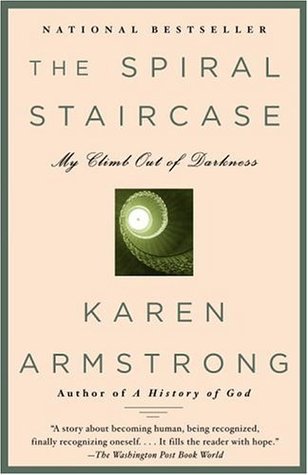Thanks a shitload, Karen Armstrong.
I mean, I’m happy for your diagnosis
and all. I mean, not knowing is worse
than floating in medical limbo.
I get the stigma of epilepsy: how
people can be cruel, even smart ones,
with puppy words that never bite,
at least not until they grow teeth.
“No Karen,” she agreed, adding …
“Hospitals are not for intelligent people.”
Woof. I must be super stupid, thinking
illness was the cause for my admissions.
I wish you could have met my friend
who was so smart he hanged himself.
If only he could have been stupid
and gotten the help he needed.
I get the freedom of diagnosis: how
it drops the scales from your eyes
and lets you see you are not mad,
your mind, not “irretrievably flawed”:
the world has been given back to you.
Has it been taken away from me?
Don’t make me the baby you toss
out with your tepid bath water.

This is a poetic response to some passages I read in The Spiral Staircase: My Climb out of Darkness, a memoir by Karen Armstrong. I read it as research for a novel I’m writing in which one of the characters is an ex-nun. As I had hoped, the memoir gave me insight into the experience of transitioning from convent to the secular world. I admire Armstrong’s writing and her work to promote understanding amongst the world’s major religions. However, I tripped over something that I couldn’t ignore. Armstrong recounts mysterious episodes of fainting, forgetfulness, finding herself in strange places, experiences of anxiety and panic. The sisters of her order believed she was hysterical and engaging in attention-seeking behaviour. Later, as an academic outside the convent, she was referred to a psychiatrist and even hospitalized for psychiatric treatment. Eventually, she received a correct diagnosis: epilepsy. However, her relief was accompanied by an “it could have been worse; I could have been mentally ill” sentiment. To which I respond: so what if you were? In the long run, would it have made any difference? Should it make any difference?
I suppose what bothers me is that, although she is sensitive to the problem of stigma, at least in relation to epilepsy, she nevertheless writes in a way that contributes to stigma in relation to mental illness.